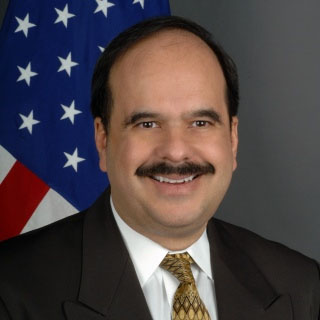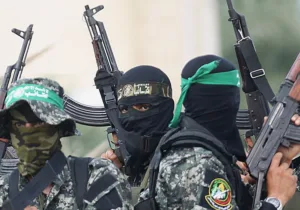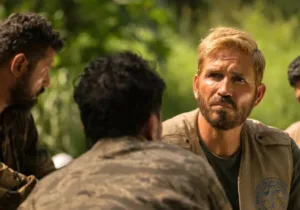Much has been made of some of the supposedly colossal foreign policy mistakes of the Obama Administration. Such a list could start with Syria and might vary in terms of length and gravity according to the point of view of the critic. One criticism not often made, at least not fully, is that the Obama Administration was caught flat-footed by the changing information environment revolutionized by the rise of social media.
When this criticism is leveled at the Administration, it is usually within the context of confronting the ISIS media juggernaut, especially since the declaration of the ISIS Caliphate in June 2014. But the communications challenge facing the United States goes far beyond ISIS and even transcends the poor job this Administration has done in the new information space. The story of how international bad actors—ISIS and al-Qa’ida, Russia, Iran, China—have repurposed the social media revolution and ideological worldviews into tools for political warfare began before Obama’s presidency but has grown considerably darker and more dangerous under his watch.
The ISIS way of doing social media in particular—global and personal, toxic and visionary—will not be limited to Salafi Jihadism but will also influence non-Muslim Far-Right and Far-Left mobilization throughout the world for years to come. This digital activism is often coupled with the work of real people on the ground, closing the deal on radicalization.
The biggest problem is that no one in the US Government actually has this political-ideological-media mandate. The closest positions that come close to it are the diplomats, civil servants, and broadcasters that fall under the Public Diplomacy (PD) category at the State Department and under the Broadcasting Board of Governors (BBG). I was a PD officer at State for 16 of my 32 years in government (the other 16 were at the defunct US Information Agency, USIA) and can personally attest to the hard work and dedication of many of these government employees.
But PD today is all too often not about waging information warfare, about contending worldviews, or even about engaging with foreign audiences in order to win but about engagement merely for the sake of engagement. “Mutual understanding” is not enough if your adversary remains hostile. Indeed, there is also some institutional hostility at State to the very idea that we are in a global media war that needs to be fought aggressively.
Part of the mandate problem here is ideological. Our elites are all too often post-modern, uncomfortable with the concept of deep-seated belief—whether in a political ideology or a religion. It is often a concept all too alien and derided by a wide swath of our supposed best and brightest. But it is hard to understand, much less counter, an adversary who believes in Jihad in the Path of God, of the coming of the Hidden Imam, or even in Mother Russia, if your horizon is limited to fuzzy concepts of secularism or deism. Faith, faith in something or someone, is an essential part of what Thomas Hegghammer has called the “cultural-emotional dimension” of radicalization.
Closely tied to the lack of a clear mandate is the lack of leadership. Both USIA in its final years and PD senior leadership at State has become something of a dumping ground for second-rate political appointees, former journalists, or advertising executives generally clueless about both government and diplomacy. There are a few honorable exceptions, but the rule of amateurs over the past 20 years in this field has been disastrous, just as a renewed and empowered way of waging political warfare through media has emerged.
And certainly lack of funding is a problem along with lack of a mandate and poor leadership. The Public Diplomacy and Broadcast functions of the US government are a modest but key part of the Foreign Affairs budget, making about 2% of total expenditures. In FY 2014, PD funding was about $562 million while funding for the Broadcast Board of Governors (BBG) was $733 million. This total of $1.3 billion a year funds a wide and comprehensive, often bewildering, range of program and niche initiatives worldwide. Russia probably spends less than we do (and ISIS spends far less). The problem here for us, perhaps, is more about trying to do too much with too little, with our misalignment of programs and priorities in a changing environment.
Ironically, the work of the old Center for Strategic Counterterrorism Communications (CSCC) and its successor, the Global Engagement Center (GEC) at State, as flawed and lacking as both were, were attempts to realize that we live in a changed, deeply ideological information eco-system. But all too often, the work of reinvention has been limited to the unfortunate use of hashtags or embarrassing, under-funded slapdash pinpricks to counter a massive Russian campaign.
I am not one to indulge in unrealistic nostalgia for the work of USIA. What is needed is not a new government agency but a new way at looking at a revolutionary world where social media, traditional media, and grassroots activism grounded in deeply-held (if often extreme) worldviews contribute to the unraveling of all sorts of institutions and sources of authority and affecting our foreign policy goals. An essential first step is understanding that the world is stranger, more faithful, and sincere than the Acela Corridor.
Ideally such a new integrated and empowered effort at projecting American influence using both media and people would have White House buy-in to actually succeed. It would combine both a realization of the changing, fluid environment we live in with its velocity, volume, and venom and the street smarts, cultural sensitivity, and language ability of an invigorated PD officer corps with a clear mandate to engage on the ground to convince and win for America and its interests worldwide.
—
Alberto M. Fernandez is vice-president of the Middle East Media Research Institute and a member of the board of directors of George Washington University’s Center for Cyber and Homeland Security. He served as the U.S. State Department’s coordinator for the Center for Strategic Counterterrorism Communications from 2012 to 2015, retiring from the State Department in May 2015. Fernandez has served as U.S. ambassador to the Republic of Equatorial Guinea; charge d’affaires to the Republic of Sudan; director for Near East public diplomacy; director for Iraq public diplomacy; and in senior public diplomacy positions at the U.S. embassies in Afghanistan, Jordan, Syria, and Guatemala. His awards include the 2008 Presidential Meritorious Service Award, 2006 Edward R. Murrow Award for Excellence in Public Diplomacy, and a 2003 Superior Honor Award for his work in Afghanistan. Fernandez has published in ReVista: the Harvard Review of Latin America, Middle East Quarterly, and the Journal of the Assyrian Academic Society.
Photo Credit: President Obama tweets a question during the Twitter Town Hall in the East Room of the White House, July 6, 2011. Twitter co-founder and Executive Chairman Jack Dorsey, who served as the town hall moderator, is pictured at left. Official White House Photo by Pete Souza, via WhiteHouse.gov.







 Sponsor a student for Christianity & National Security 2024
Sponsor a student for Christianity & National Security 2024